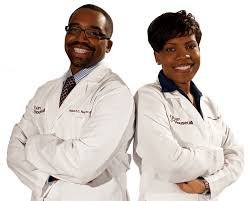A clinical officer (CO) is a gazetted officer who is qualified and licensed to practice medicine.
A clinical officer observes, interviews and examines sick and healthy individuals in all specialties to determine and document their health status and applies relevant pathological, radiological, psychiatric and community health techniques, procedures and findings needed to classify diseases and related health problems and to establish a provisional or final diagnosis upon which to prescribe, initiate, carry out or terminate treatment or therapy based on their specialized knowledge, skills and experience in clinical pharmacology, use of clinical guidelines, best practices and disease patterns as well as individual patient and community characteristics while being actively pharmacovigilant to prevent, identify, minimize and manage drug reactions, drug errors, side effects and poisoning, overdiagnosis, over-screening, over-treatment and futile care.
A clinical officer performs general and specialized medical duties such as diagnosis and treatment of disease and injury, ordering and interpreting medical tests, performing routine medical and surgical procedures, referring patients to other practitioners and managing health departments, institutions, projects and systems.
As a gazetted officer a clinical officer generates credible health data and information within communities and health institutions and cascades the same to the county and national governments, government agencies and third parties through standard recording and reporting tools from the Ministry of Health which are used to capture data on disease outbreaks, physical injuries and deformities, mental illness, drug resistance, disability, nutritional disorders, births and deaths among other.
A clinical officer is usually the lowest entry-level cadre in the medical hierarchy but with years of experience and/or further training one can rise to the same or a higher grade than a physician. In most countries, however, wages are usually low compared to training and responsibilities and career progression is usually restricted by awarding terminal degrees and diplomas, training students who have not attained the minimum university entry grade and, in some countries, not awarding any degree or recognition for advanced training. In such countries, this usually results in a demotivated and low quality workforce and resulting poor health indicators.
Clinical Officers and Assistant Clinical Officers in Tanzania
In Tanzania, Clinical officer training is under the Ministry of Health. There are numerous clinical officer training schools and programs last three years. Internship is not required for registration.
Experienced clinical officers may enrol for an advanced diploma in clinical medicine which takes two years to complete. This qualification is regarded as equivalent to a first degree in medicine by universities and the Ministry of Health in the country. The graduates are known as Assistant Medical Officers which no longer exist since 2017 so a clinical officer can upgrade by studying a bachelor’s degree in clinical medicine in any East African country for three years or study it in Tanzania for four years and graduate as a doctor equivalent to an MD graduate even in salary and job opportunities or can study the Medical Doctor(MD) which is a 5-year course plus 1 internship year making a total of 6 years and can add 1 year to be Medical bachelor and Bachelor in Surgery(MBBS) if interested.
Clinical Officers and Assistant Clinical Officers (Clinical medicine) Entry requirements in Tanzania
Technician Certificate in Clinical Medicine ( Assistant Clinical Officers )
Holders of Certificate of Secondary Education Examination (CSEE) with four (4) Passes in non-religious Subjects including “D” Passes in Chemistry, Biology and Physics/Engineering Sciences A Pass in Basic Mathematics and English Language Is An Added Advantage.
Ordinary Diploma in Clinical Medicine ( Clinical Officers )
Holders of Certificate of Secondary Education Examination (CSEE) with four (4) Passes in non-religious Subjects including “D” Passes in Chemistry, Biology and Physics/Engineering Sciences A Pass in Basic Mathematics and English Language Is An Added Advantage.









Discussion about this post